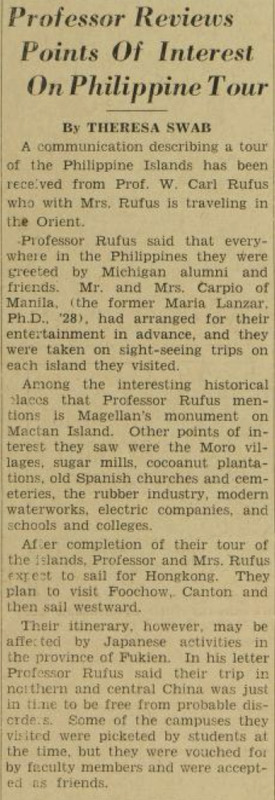Filipino Students Stateside
The American imperial ideology of “Benevolent Assimilation” was carried out in a number of ways. Elsewhere in this exhibit we saw how important colonial education was for the inculcation of American values among Filipinos in the archipelago. But these efforts were not only carried out in one direction. Starting at the turn of the twentieth century, as the Philippine-American War raged on, young Filipinos from elite families traveled to the United States to attain a university education from some of the country’s most prestigious institutions--the University of Michigan among them. The post The Pensionados at the University of Michigan explores the experience of some of these students. We reveal how Filipino men, and later, women, undertook studies in fields like law, medicine, and engineering, with the assumption that they would return to the Philippines as agents of the US ‘civilizing’ mission. The Pensionados and the Image of the Filipino 'Primitive' looks at articles from a bi-monthly Filipino-American magazine to understand the ways that pensionados positioned themselves against so-called primitives in their homeland. Pensionado Profile: Santiago Artiaga examines the life of one of the first pensionados at the University of Michigan. Lastly, The Barbour Scholarship and US empire post focuses on Filipino women's experiences. As is the case with other Filipinos featured in this exhibit, the sources discussed in this post paint a more complicated picture. In other words, students from the Philippines were by no means of one mind about either their goals or their experiences of studying stateside.

